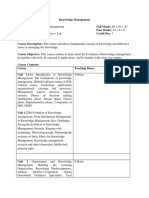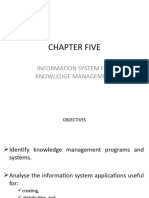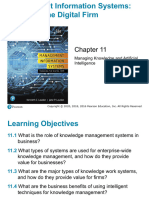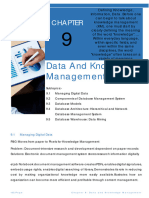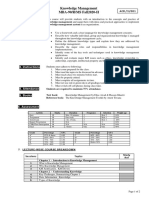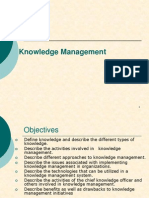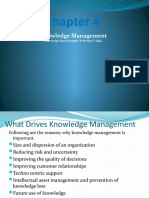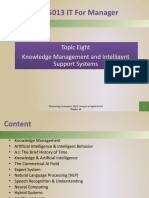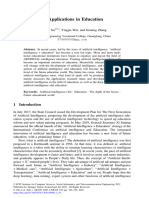Syllabus
CS6659 ARTIFICIAL INTELLIGENCE L T P C 3 0 0 3
UNIT I
INTRODUCTION TO Al AND PRODUCTION SYSTEMS
Introduction to AI-Problem formulation, Problem Definition -Production systems, Control strategies,
Search strategies. Problem characteristics, Production system characteristics -Specialized production system
- Problem solving methods- Problem graphs, Matching, Indexing and Heuristic functions Hill
Climbing-Depth first and Breath first, Constraints satisfaction - Related algorithms, Measure of
performance and analysis of search algorithms.
UNIT II
REPRESENTATION OF KNOWLEDGE
Game playing- Knowledge representation, Knowledge representation using Predicate logic,
Introduction to predicate calculus, resolution, Use of predicate calculus, Knowledge representation
using other logic-Structured representation of knowledge.
UNIT III
KNOWLEDGE INFERENCE
Knowledge representation -Production based system, Frame based system. Inference Backward
chaining, Forward chaining, Rule value approach, Fuzzy reasoning - Certainty factors, Bayesian TheoryBayesian Network-Dempster- Shafer theory.
UNIT IV
PLANNING AND MACHINE LEARNING
Basic plan generation systems - Strips -Advanced plan generation systems K strips Strategic
explanations -Why, Why not and how explanations. Learning- Machine learning, adaptive Learning.
UNIT V
EXPERT SYSTEMS
Expert systems - Architecture of expert systems, Roles of expert systems - Knowledge Acquisition
Meta knowledge, Heuristics. Typical expert systems - MYCIN, DART, XOON, Expert systems shells.
TOTAL: 45 PERIODS
TEXT BOOKS:
1. Kevin Night and Elaine Rich, Nair B., Artificial Intelligence (SIE),McGraw Hill- 2008.(Units-I,II,VI & V)
2. Dan W. Patterson, Introduction to AI and ES, Pearson Education, 2007. (Unit-III).
REFERENCES:
1. Peter Jackson, Introduction to Expert Systems, 3rd Edition, Pearson Education, 2007.
2. Stuart Russel and Peter Norvig AI A Modern Approach, 2nd Edition, Pearson Education 2007.
3. Deepak Khemani Artificial Intelligence, Tata Mc Graw Hill Education 2013.
4. http://nptel.ac.in
�SYLLABUS
IT6011
KNOWLEDGE MANAGEMENT
L T P C
3 0 0 3
UNIT I
INTRODUCTION
Introduction: An Introduction to Knowledge Management - The foundations of knowledge
management - including cultural issues - technology applications organizational concepts and processesmanagement aspects - and decision support systems. The Evolution of Knowledge management:
From
Information
Management
to
Knowledge
Management
Key Challenges Facing the Evolution of Knowledge Management-Ethics for Knowledge Management.
UNIT II
CREATING THE CULTURE OF LEARNING AND KNOWLEDGE SHARING
Organization and Knowledge Management - Building the Learning Organization. Knowledge Markets:
Cooperation among Distributed Technical Specialists Tacit Knowledge and Quality Assurance.
UNIT III
KNOWLEDGE MANAGEMENT-THE TOOLS
10
Telecommunications and Networks in Knowledge Management - Internet Search Engines and
Knowledge Management - Information Technology in Support of Knowledge Management Knowledge Management and Vocabulary Control - Information Mapping in Information Retrieval Information
Coding
in
the
Internet
Environment
Repackaging
Information.
UNIT IV
KNOWLEDGEMANAGEMENT-APPLICATION
Components of a Knowledge Strategy - Case Studies (From Library to Knowledge Center,
Knowledge Management in the Health Sciences, Knowledge Management in Developing Countries).
UNIT V
FUTURE TRENDS AND CASE STUDIES
Advanced topics and case studies in knowledge management - Development of a knowledge
management map/plan that is integrated with an organization's strategic and business plan - A case study on
Corporate Memories for supporting various aspects in the process life -cycles of an organization.
TOTAL: 45 PERIODS
TEXT BOOKS:
1. Srikantaiah, T.K., Koenig, M., Knowledge Management for the Information Professional
Information Today, Inc., 2000.
REFERENCE:
1. Nonaka, I., Takeuchi, H., The Knowledge-Creating Company: How Japanese Companies Create the
Dynamics of Innovation, Oxford University Press, 1995.







